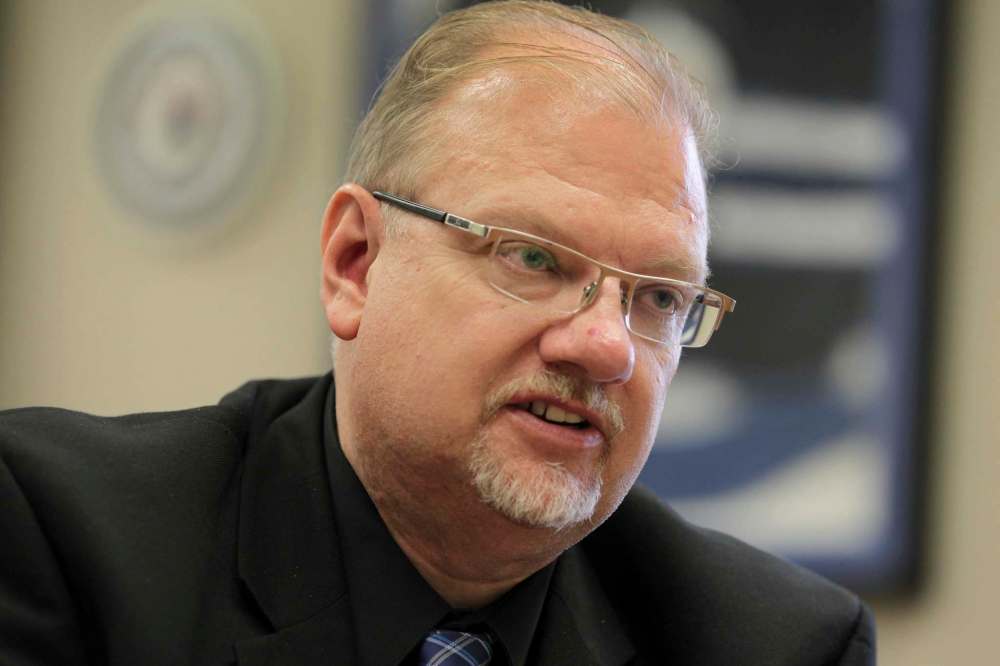Tories decide $3.1M in prevention cuts should be part of financial cure
Advertisement
Read this article for free:
or
Already have an account? Log in here »
To continue reading, please subscribe:
Monthly Digital Subscription
$0 for the first 4 weeks*
- Enjoy unlimited reading on winnipegfreepress.com
- Read the E-Edition, our digital replica newspaper
- Access News Break, our award-winning app
- Play interactive puzzles
*No charge for 4 weeks then price increases to the regular rate of $19.00 plus GST every four weeks. Offer available to new and qualified returning subscribers only. Cancel any time.
Monthly Digital Subscription
$4.75/week*
- Enjoy unlimited reading on winnipegfreepress.com
- Read the E-Edition, our digital replica newspaper
- Access News Break, our award-winning app
- Play interactive puzzles
*Billed as $19 plus GST every four weeks. Cancel any time.
To continue reading, please subscribe:
Add Free Press access to your Brandon Sun subscription for only an additional
$1 for the first 4 weeks*
*Your next subscription payment will increase by $1.00 and you will be charged $16.99 plus GST for four weeks. After four weeks, your payment will increase to $23.99 plus GST every four weeks.
Read unlimited articles for free today:
or
Already have an account? Log in here »
Hey there, time traveller!
This article was published 25/04/2017 (3158 days ago), so information in it may no longer be current.
Two organizations representing Manitoba doctors are worried about plans to reorganize Winnipeg’s hospital system.
Dr. Barbara Kelleher, president of Doctors Manitoba, said the proposed closure of emergency rooms and intensive care centres at three hospitals “could harm patient care.”
In a letter to the Medical Post, she said she is concerned remaining ERs and urgent care centres “may not be provided with the necessary resources” to keep up with the greater demand for acute care services.

“Physicians are already being asked to do more with less and to assume a heavier administrative burden,” said Kelleher. “Failing to properly resource emergency rooms and urgent care centres that remain open could have serious consequences for patients.”
Doctors Manitoba is the bargaining agent for the province’s physicians.
Kelleher said the Winnipeg Regional Health Authority will save almost $20 million a year from the changes because of layoffs of frontline ER, urgent care and intensive care unit physicians.
The WRHA said in a statement it did not anticipate any significant reductions in emergency or critical care physician positions.
Meanwhile, in a letter to members, the president of the 1,200-member Manitoba College of Family Physicians said she is worried the changes proposed by the Progressive Conservative government and the WRHA could negatively affect the hospital-based practices of many family doctors in the city.
Dr. Deirdre O’Flaherty said while the college is eager to help the health-care system become more efficient, she is concerned the role of family physicians in the proposed new system will be undermined.
She told members she is pressing for a meeting with the Health Department and the WRHA to discuss her organization’s concerns.
Among the planned changes announced by the province and WRHA on April 7 were the closures of the Concordia, Seven Oaks and Victoria hospital ERs. Seven Oaks and Victoria will instead operate 24-7 urgent care centres, while Misericordia’s urgent care centre will be closed and the space used for other purposes.
The hospital reorganization dominated question period at the legislature Tuesday and a subsequent meeting to discuss the Health Department’s spending estimates.
Addressing the two doctors organizations’ concerns, Premier Brian Pallister said while he has “tremendous respect for physicians generally” and their associations, the government must do what’s best for patients.
He said Manitoba has long had some of the country’s longest medical wait times, including for ER waits, so maintaining the status quo is no longer an option.
Pallister said the changes that will be implemented in the coming months and years are based on consultations with experts.
“I won’t deny that those changes may be seen as challenging,” the premier said. “But not facing up to those challenges is not acceptable. So we will.”
NDP health critic Matt Wiebe grilled Health Minister Kelvin Goertzen during health estimates about the report, by consultant David Peachey, on which much of the city hospital reorganization is based. The report had been commissioned by the former NDP government.
Goertzen flatly rejected suggestions he or his staff changed Peachey’s mandate or had a hand in influencing or altering the final report.
“We accepted it as presented. I did not select Dr. Peachey to conduct the (study). I had never heard of Dr. Peachey prior to becoming minister of health. It would be fair to surmise that I was probably as hands-off on a report as a minister could be,” Goertzen said.
The NDP is likely to keep the health minister on the hot seat for several more days.
The Health Department, with a budget of $6.1 billion, makes up nearly half of Manitoba’s core government spending.
Supplementary health spending information released this week shows the Pallister government is cutting funding for programs that monitor and promote public health by more than 10 per cent this year.
Goertzen may find himself answering questions on why his department plans to spend $4.2 million less for physician recruitment and retention in Manitoba this year, or why the department’s mental-health and addictions spending is forecast to be down $872,000. (The Addictions Foundation of Manitoba, however, is slated to get a $705,000 increase on a budget that now exceeds $24 million.)
— with file from The Canadian Press
larry.kusch@freepress.mb.ca

Our newsroom depends on a growing audience of readers to power our journalism. If you are not a paid reader, please consider becoming a subscriber.
Our newsroom depends on its audience of readers to power our journalism. Thank you for your support.


